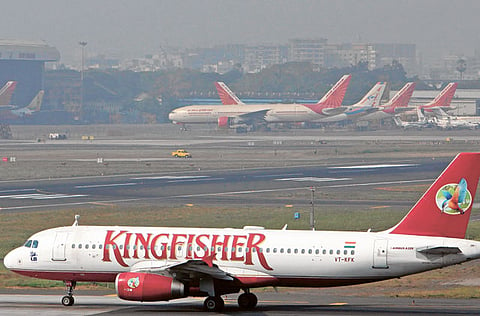India, China fall foul of EU carbon law
Ten airlines hauled up for flouting emission norms given until mid-June to fall in line

Brussels: A total of ten Chinese and Indian commercial airlines have broken EU law requiring them to offset their carbon emissions, while all other international carriers flying to or from Europe have complied, the European Union's climate chief said yesterday.
The EU law demanding all airlines participate in the EU's Emissions Trading Scheme (ETS) has prompted outcry and threats of a trade war.
But only eight Chinese and two Indian airlines have delivered on threats not to comply, while more than 1,200 airlines have met the EU's requirements.
"We have given them [India and China] until mid-June to report back their data," EU climate commissioner Connie Hedegaard told a news briefing.
The Commission, the EU's executive arm, has the option of fining airlines that break its law, or even banning repeat offenders from flying to Europe, although this would be a last resort.
To reduce tension, the Commission has looked to the UN's International Civil Aviation Administration (ICAO) to come up with a global approach to curbing emissions from airlines.
The body is expected to meet next month to review progress.
"We are using a lot of time and energy in trying to ensure a global solution through ICAO," Hedegaard said. "Nobody would be happier than the EU if it could achieve [that]."
Carbon prices
The Commission has said it only decided on its plan after more than a decade of talks at the ICAO failed to agree on a global scheme to combat rising carbon emissions. It has also said it would modify its law if ICAO can deliver a deal.
The cost of carbon allowances on the EU ETS has fallen to record lows, pressured by oversupply following economic recession.
Yesterday, carbon prices were trading at below €7 a tonne — far below levels needed to spur low carbon investment.
Hedegaard said in April that the Commission was reviewing its carbon auctioning timetable to try to reduce oversupply in the market. She expected news on the review before the Commission breaks for its August recess, with a legal decision expected before the end of the year.
Changing the auctioning timetable to limit supply in the nearer term — or "backloading" — was a relatively quick solution, but other options under discussion, including setting aside allowances, could take longer.
Sign up for the Daily Briefing
Get the latest news and updates straight to your inbox



